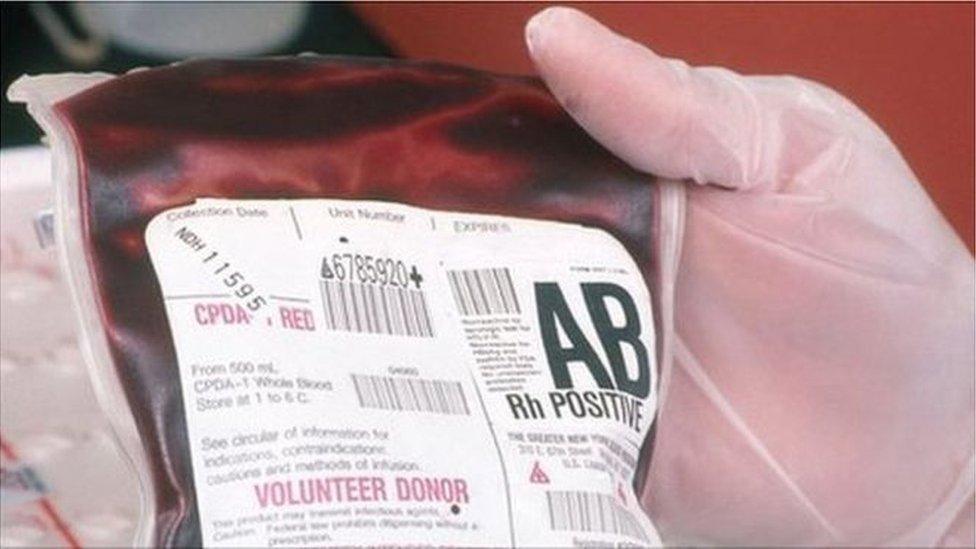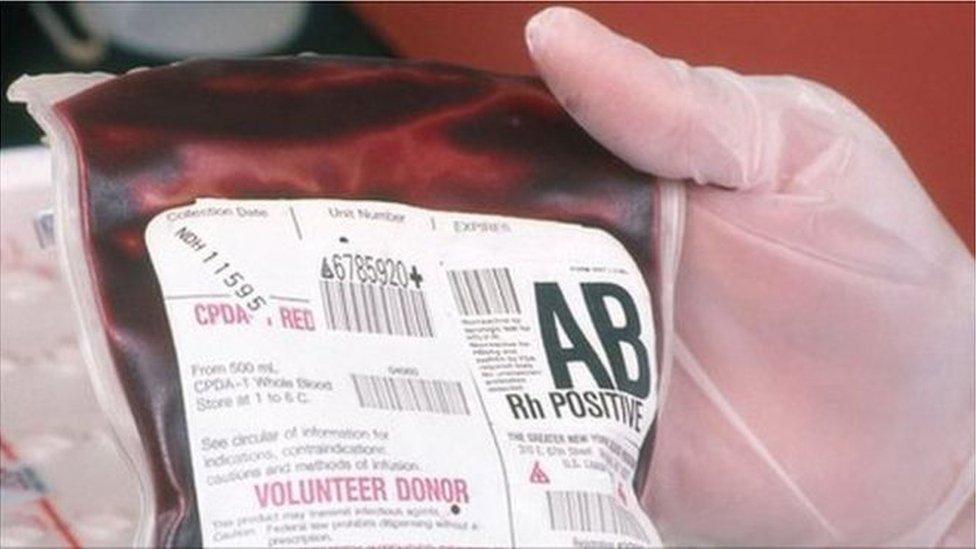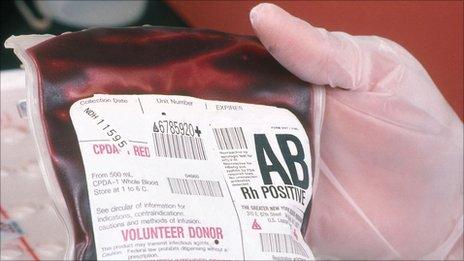Gay blood ban: Northern Ireland lawyers to petition Supreme Court
- Published

The ban, put in place during the 1980s Aids crisis, was lifted in England, Scotland and Wales in November 2011
A man is taking a legal challenge to a ban on gay men giving blood in Northern Ireland to the UK's Supreme Court.
In March, the Court of Appeal in Belfast ruled that it was up to Stormont's health minister to decide whether a lifetime ban on homosexual blood donations should be lifted.
Now, the man's lawyers are to petition the UK's highest court in London.
In England, Scotland and Wales, men can give blood if they have not had sex with another man for at least a year.
The case is being taken by a man who is gay and has been granted anonymity.
His legal team returned to the Court of Appeal sitting in Belfast on Monday seeking permission to take their case further.
Lord Chief Justice Sir Declan Morgan refused leave, but he indicated that the Supreme Court may, nevertheless, identify points it would want to explore.
On that basis, lawyers are to petition judges in London for a hearing.
"We believe there are arguable points of law of general public importance which should be considered by the UK Supreme Court.
"We will be making an application directly for permission to appeal," his solicitor said.
At the Court of Appeal in March, an earlier ruling that former health minister Edwin Poots had acted irrationally or with apparent bias by maintaining the ban was dismissed.
The judges also held there was no basis for concluding that Mr Poots' decision had been pre-determined by his Christian beliefs.
By a 2-1 majority, the judges concluded that the current maintenance of the lifetime ban was not "disproportionate or contrary to EU law".
The ban on gay men donating blood, which was put in place during the 1980s Aids crisis, was lifted in England, Scotland and Wales in November 2011.
- Published16 March 2016

- Published8 January 2015

- Published11 October 2013

- Published16 March 2016

- Published19 January 2015
